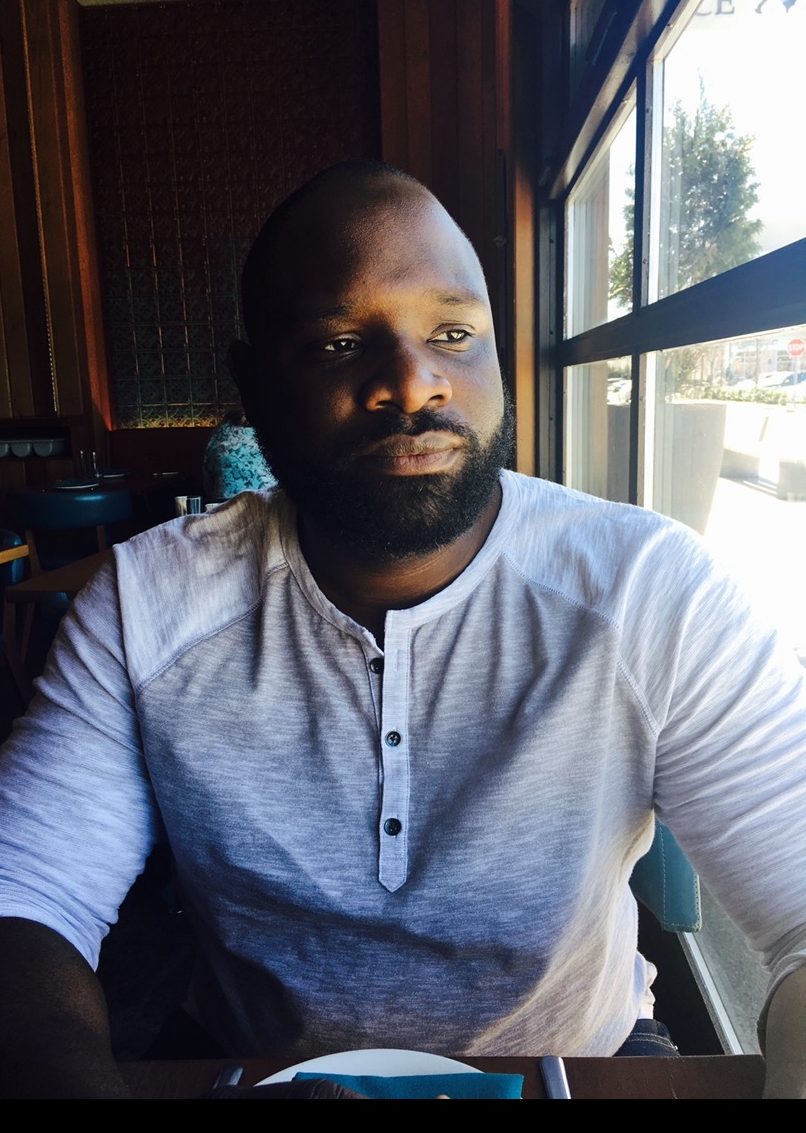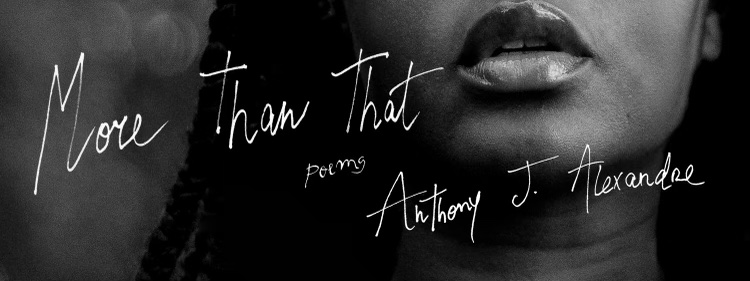
In my life as a white woman, there have been a few people who have cared enough to take my hand and walk me into ‘the race conversation.’ If I can ever consider myself ‘woke’ it is because of them. Anthony is one of those people. When I heard he had published a book of poetry I jumped at the chance to sit down (virtually) and talk about writing, race, and how we can begin to instill a love of poetry in our kids.
NR: Thanks for taking the time to talk with us! Tell us about yourself!
AA: My name is Anthony J. Alexandre. I am a Haitian American husband, author, and teacher, living in New York City. My wife Janelle and I met in middle school, and we’ve been married for 6 years now. I’ve written poetry on and off for most of my life, and I am proud to say that I’ve recently published a collection of poems entitled More Than That.
NR: Your book is entitled More Than That. How did you find your way to that title?
AA: When I was in high school, I had been thinking about the word “sorry,” and how easy it was to say without meaning. I made the connection to the same misuse of the word “love” and I wrote a poem called More Than That. It instantly became one of my favorite pieces. I felt like I was learning from something I myself had written. It was a paradox. Poetry is usually made up of more than what you read on the page.
NR: I have never read a book of poetry. I’m sure I’m not the only one! What advice do you have for those of us who are intimidated by poetry in general?
AA: As a teacher, I can say that our academic approach to poetry is largely misguided. We are taught the technical aspects of poetry before we are taught to feel it. Think of poetry in the same way you do music. When you open up a collection of poetry, find a title that sticks out to you. Read that piece and get a feel for the writer. Sample one more piece in the same way. You’ll know what to do on your own from that point on. No one taught you to nod your head to the music.
NR: During the recent presidential inauguration, poet laureate Amanda Gorman blew us all away with her performance of her original poem The Hill We Climb, inspiring a new generation of young people to try their hand at the craft. Do you have any advice on getting started writing poetry?
AA: My biggest piece of advice is that you can not write good poetry if you refuse to be sincere. Good poetry demands your honesty. This is how you show respect to the craft. Be honest about who you are, where you are from, and what you’ve born witness to, and you will have poetry.
NR: You write about some fraught topics like faith, race, and sex. Do you feel that poetry is a good gateway to discussing these issues for people who may not feel comfortable talking about them?
AA: Absolutely! I know this because I write what I had not had the courage to say until I’ve written. These topics have no outlet at the dinner table. We speak about faith maybe, but in formulaic ways. Race doesn’t get spoken about, even when it’s being spoken about. And sex, forget about it. To speak openly about sex is to be looked down upon by the community. Community that is made possible by sex! To speak about enjoying sex is unallowed and offensive. But those you offend, enjoy sex, or want to. So yes, I think poetry is one way to open up about these things in a safe and quiet way.
NR: Some of your poems explore the racial tension in our country. How do you feel your identity as a black man influences your writing?
AA: My identity as a black man influences my writing in the same way anyone’s identity influences all they seek to do. I write from a specific reality as everyone has to. This is because good poetry demands honesty. I think that poetry has allowed me to share some feelings without apology. Racial inequality is so obvious in this country. Even more so now, when you compare the handling of different groups of protestors in 2020 and 2021. Yet, there are those who continue to deny the painful reality of the existence of two Americas. My writing allows me to voice how I feel, in terms that I may not use in conversation. With poetry, I do not carry the burden of a filter.
NR: In the wake of George Floyd’s death many of us had our eyes opened to the very real problems of systemic racism for the first time. Books like White Fragility and How to Fight Racism have been flying off the shelves. Clearly, people see the need to have these conversations. How do you feel that poetry enhances the conversation of racial justice?
AA: The books that you mentioned bring informational insight into issues that have been so real, for so long, to so many. As those books bring informational insight, it is the job of poetry to expose the emotional hurt associated with those issues. In fact, I wouldn’t be surprised if the books you mentioned contain quotes from poets and orators who made speeches in poetic form, simply because there is no other way to tell the story. Information can go but so far. But people need to feel in order to grow in empathy. And then we can hope for real change. While my book is not intended for children, The Undefeated is a great example of this concept in a format that is accessible to young readers.
NR: Do you have a favorite poem from your book?
AA: I think the poem Gentleman is one of my favorites because it speaks about what it means to be a black man. The piece shows black manhood as a constant pursuit. There is always something more to do and a little more to prove. There is a constant seeking after the answer and the recognition that in our humanity, we are imperfect. That piece speaks volumes to me because, in it, I see my people.
NR: Any advice on fostering a love of poetry in our kids?
AA: I would say that if you want to foster a love for poetry, encourage children to learn the words to the songs they like. Sing along with them when their favorite movies include music. Ask them what they think the words mean. Finally, when you introduce reading material, include poetry and have your children write out their favorite quotes. I believe this will cause children to write before they realize it is poetry.
NR: Anything else you’d like to share with us?
AA: I would love to hear what my readers think! Feel free to leave an honest review on Goodreads or Amazon. If there are any questions about a particular piece, please email me at [email protected]. Thank you so much!
Anthony’s book, More Than That, is included in our Valentine’s Date Night In Boxes- order your box today and get your poetry delivered on Saturday 2/13 along with everything else you need to make date night special- pasta, sauce, salad greens, coffee, chocolate, candles, and cards.











I really love this interview bro and your answers and the interviewer asked great questions as well bro. I’m proud of you as you know. Keep doing your thing.
Comments are closed.